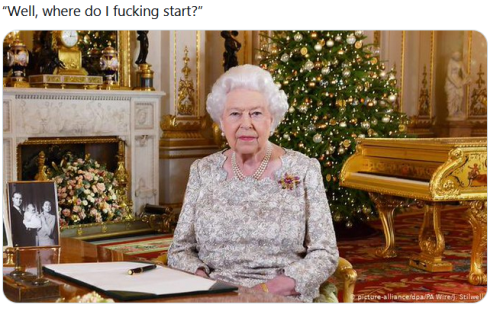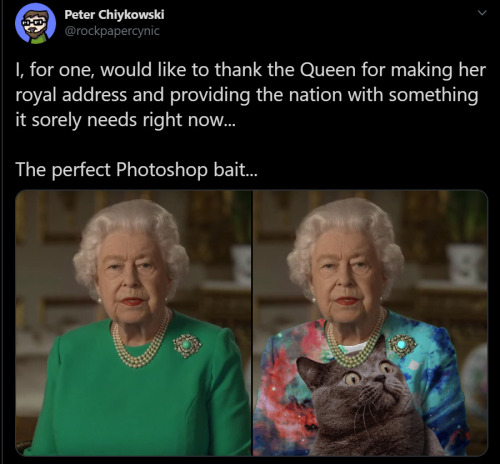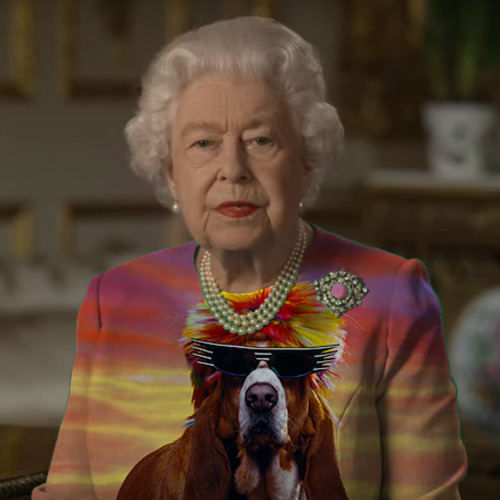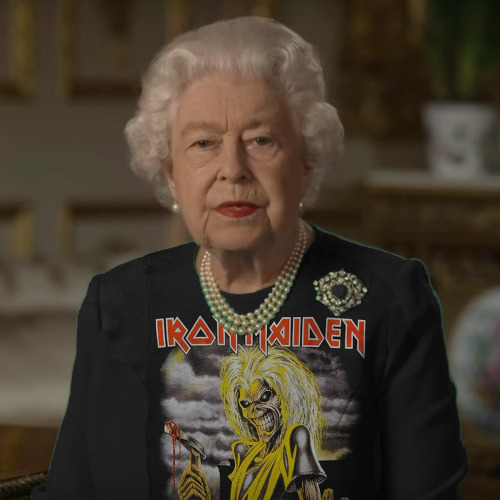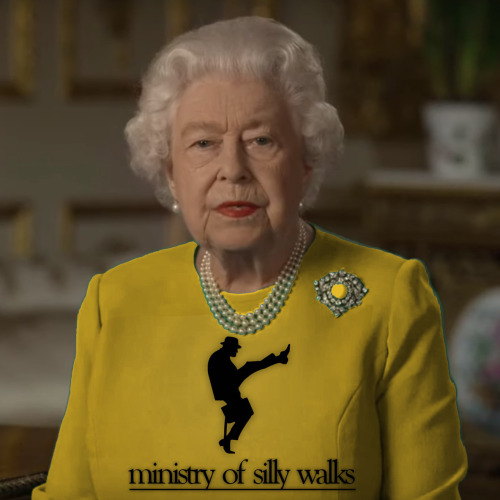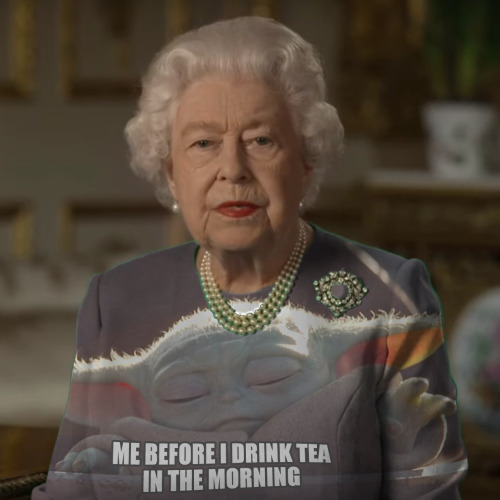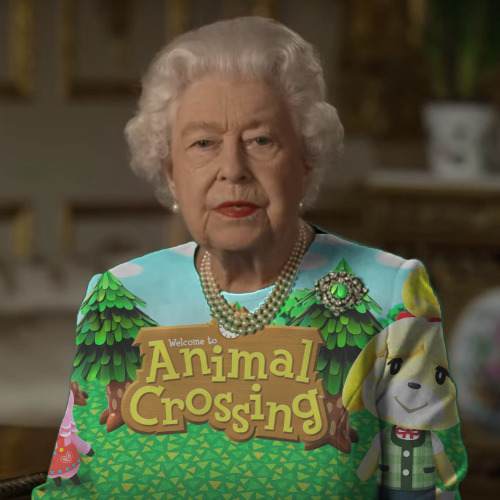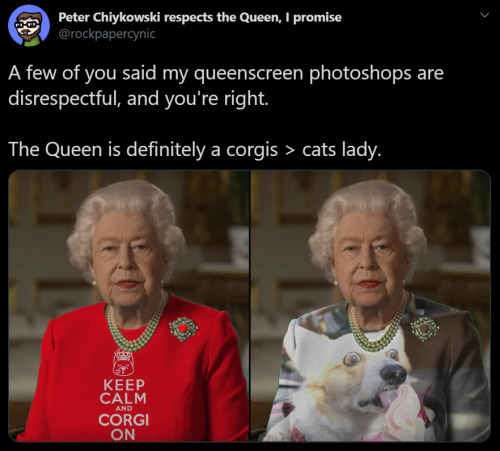#queens speech
The Queen’s Speech has been rescheduled for Wednesday June 21st, 2 days later than originally planned. This despite no official deal being reached yet between the Conservatives and the DUP.
The Queen’s Speech has been delayed.
Hold up, isn’t the Queen’s Speech just a Christmas thing?
This has been a common question today, so if you’ve been wondering the same thing, you weren’t alone! The Queen gives her Christmas speech every year (makes sense, right?) but to get full value for money on the royal family, she’s also brought out after each general election.
Makes sense. So what does she actually talk about?
The post-election Queen’s Speech is a quick summary of all the major policies the party-in-power hope to implement over their term. Not everything will make it in: the past two Tory manifestos pledged to repeal the ban on fox hunting, but the policy never featured in the speech.
When was it meant to happen?
The speech was originally scheduled for June 19th (next Monday). No date has been set yet for when we’ll end up hearing it.
Okay, but why has this one been delayed then?
Right, so this is where it gets a bit more complicated, mostly because at this point we move into the realm of speculation. Never a good thing for an article on politics, y’know?
Theresa May ran on a promise of strength and stability. She was hoping to get a huge majority for the Tories to (a) put Britain in a better negotiating position with the EU and (b) bolster her self-esteem. This didn’t go to plan: we now have a ‘hung parliament’.
All those policies the Tories could have put in the Queen’s Speech suddenly look doubtful to pass a vote in the House of Commons. Right now, senior Tories are going over and over their manifesto looking for the bits and pieces that stand a chance and coming to terms with the policies they’ll have to lose. This is one of the reason’s it’s going to take longer than usual to prepare the speech.
Didn’t the Tories make that deal with the DUP to avoid this sort of thing though?
The DUP agreement is a Confidence and Support deal rather than a full on coalition. What this means is that the 10 DUP MPs in the Commons keep their right to vote against Tory policies if they don’t agree with them.
A good example is triple-lock pensions. This is a promise by the government to increase state pensions each year in line with inflation or wage growth, or by 2.5% (whichever of the three is highest). The Tory manifesto pledged to do away with this, whereas the DUP strongly support keeping the protection. In a Commons vote, the Tories will face a real struggle to secure the majority vote needed to scrap the scheme.
It’s also likely that the delay is partly because of this deal: the DUP will be making some demands of the Tories in exchange for their support that the Tories just won’t be that willing to accept.
So what does this mean for the government then?
As of right now, Theresa May’s Tory party still hold the power. The delaying of the Queen’s Speech has made them look weaker to the public and has potentially put a dent in the timetable for Brexit negotiations (will we even have an official Prime Minister when they’re due to start in 9 days?).
There’s rumour that Corbyn is poised to take full advantage of this perceived instability. Labour are supposedly planning to try and block each and every policy the Tories try to include in their Queen’s Speech. If a speech cannot be agreed upon, then there’s a series of steps that could be followed to give Corbyn a chance to form his own minority government.
That’s only a very remote possibility though!
tl;dr The Conservative Party have delayed the Queen’s Speech as they struggle to edit their manifesto to a more centrist position.
Got a question about GE17? Ask us here orsend us a tweet!
Two big stories in UK political news today, both in the form of Queen’s Speech Amendments. Last week, we gave you a quick overview of the 24 bills Theresa May’s Tories included in their Queen’s Speech, 8 of which focused on Brexit.
Today, two big amendments were put to a vote in the House of Commons.
First was a proposal led by Labour’s Stella Creasy to allow women from Northern Ireland to get free abortions in England. Currently, abortions in Northern Ireland are banned unless in extreme circumstances of poor health, and the women who travel to England for the procedures have to pay around £900. It passed the house and will now come into law.
The amendment - which was backed by more than 50 MPs from across the major parties - means Northern Irish women will now have their abortions in England covered by the NHS. Fairly reasonable, when you consider most of these women pay the taxes that fund the service. It is estimated the amendment will cost approximately £1 million per year.
Second was a Brexit-based amendment led by Labour’s Chuka Umunna. This amendment suggested the UK stay in the single market, which guarantees free movement of goods, services, money and labour within the EU. Jeremy Corbyn called on all Labour MP’s to abstain from the vote and threatened they would be sacked from any ministerial roles if they rebelled. So far we are aware of 3 Labour frontbenchers who have been sacked from their roles for not abstaining.
While parties such as Plaid Cymru and the Liberal Democrats showed unanimous support for the amendment, it was easily defeated due to Labour abstentions.
Then all that remained was the vote on the final Queen’s Speech, the last piece of the puzzle to make Theresa May the undisputed Prime Minster of the United Kingdom. With the support of the DUP’s 10 MPs, the Queen’s Speech passed.
tl;dr Good news for women, bad news for business, great news for Theresa May
Long-awaited (and for once not all that long-winded) the Queen’s Speech was finally revealed at 11:30am today. So just what did it contain?
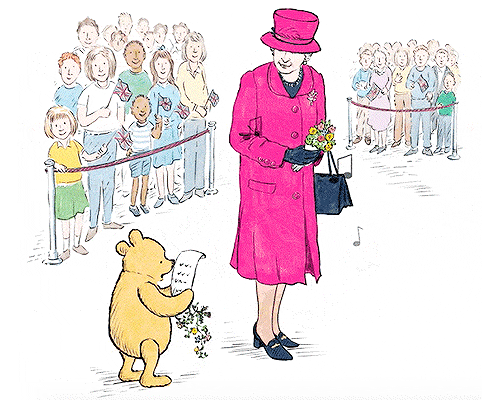
Brexit
8 out of the 24 bills in the speech related to plans for UK policy after leaving the EU. We’ve broken down the main aspects of each bill below:
- Repeal Bill – turns EU law into UK law so UK Parliament can make changes
- Customs Bill – UK takes control of import and exports
- Trade Bill – lets the UK make trade deals with other countries
- Immigration Bill – allows UK government to end free movement of EU nationals into UK
- Fisheries Bill – gives UK control of its waters and fishing quotas
- Agriculture Bill – a system will be put in place to protect UK famers
- Nuclear Safeguards Bill – creates a UK nuclear safeguards regime to replace the EU one
- International Sanctions Bill – gives government final say on imposing non-UN sanctions to the UK and ensures sanctions can still be challenged
Economy
This was a stripped back speech, with very little change in economic policy. Only 5 bills related to the economy:
- Automated and Electric Vehicles Bill – service stations will, at some point, need to install charge points for electric vehicles
- Space Industry Bill – new commercial spaceflight to be licensed, including rockets
- HS2 Phase 2A Bill – the high speed railway will extend to Crewe sooner than planned
- Smart Meter Bill – every household will be offered smart meters by 2020
- National Insurance Contributions Bill – allows for the changes announced in 2016 budget
Other
There were 11 miscellaneous policies. More notable bills include the Courts Bill, which will remove the right of partners accused of domestic violence to cross-examine their alleged victim in court.
On a similar vein, the Draft Domestic Violence and Abuse Bill will introduce new measures to protect victims of domestic violence.
For younger voters, the Data Protection Bill is very interesting - it will require social media accounts to delete information held about you at the age of 18.
What does this all mean?
Legally, not very much. Not until next week anyway, when the MPs in the House of Commons will have the chance to vote for or against each bill individually. With a majority not yet secured, there’s a chance not all of these proposed bills will pass. Even then, these are just a snapshot of proposed government policy over the next 2 years.
What the Queen’s Speech does tell us is that the Tories are not having a very happy time at the moment. A large chunk of their manifesto has gone missing:
- New grammar schools
- The ‘dementia tax’
- Scrapping triple lock pensions
- Replacing free school lunches with free breakfasts
- Energy price caps
- Voting to remove ban on fox hunting
- Means testing winter fuel payments
The suggestion is that the Tories did not think they would be able to pass these policies through the Commons - the more liberal parties were all very vocal in their opposition to these proposals during election campaigning, and even the DUP do not agree with scrapping triple lock pensions.
Through the Queen’s Speech, we’ve been given a little glimpse of the state of the Conservative Party: a monstrous papier-mâché parody of an unpopular manifesto.
They’re the focus of every political blogger today: just what is going on with the DUP.
Just last week, they were an unknown fringe party this side of the Irish Sea.
On Thursday, they looked like the most important party in Britain, that final puzzle piece that would give the Tories their majority in Parliament - if some sort of deal could be arranged.
Now? That deal looks very, very shaky.
The Queen’s Speech, after a 2 day postponement, is tomorrow. An official deal with the DUP has not yet been agreed. Without some sort of official deal in place, it will be a lot more difficult for the Tories to pass their laws through the House of Commons.
The DUP say the UK are taking them for granted. At this stage, it looks like one of the major stumbling blocks is the DUP’s demand for the removal of air passenger duty in NI (the tax you pay to fly from UK airports, payable on booking). The Tories are hesitant to consent to this in case it leads to similar calls from Scotland, Wales and England.
It looks like the public will have to wait until tomorrow to see if the DUP deal can be made in time.
Whatever’s going on, it’s certainly nothing strongnorstable.
Sources:

![The Queen’s Speech [x] The Queen’s Speech [x]](https://64.media.tumblr.com/bf99fdf8ff12a413729f74701cd33750/tumblr_orw5m0yNYm1w8r8xio1_500.png)
![The Queen’s Speech [x] The Queen’s Speech [x]](https://64.media.tumblr.com/99f0057ff0e3b03af6097d8dfebe7418/tumblr_orw5m0yNYm1w8r8xio2_500.png)
![The Queen’s Speech [x] The Queen’s Speech [x]](https://64.media.tumblr.com/c30946a9c2f03bb07303afd01bbb3d6d/tumblr_orw5m0yNYm1w8r8xio3_500.png)
![The Queen’s Speech [x] The Queen’s Speech [x]](https://64.media.tumblr.com/8642b03f6643225ab8d0e343032d0f6d/tumblr_orw5m0yNYm1w8r8xio4_500.png)
